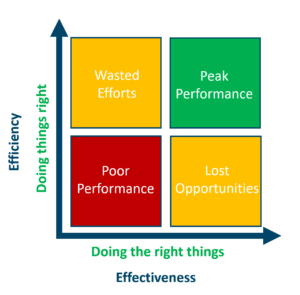If you are into college athletics, you have heard of the NCAA Transfer portal. If you are not into college athletics, basically the transfer portal is the technology used for an athlete of one school to let everyone involved know they intend to move from their current school to a new school.
There are over 500,000 student-athletes at NCAA sanctioned schools.
For the most part, we only hear about athlete transfers for the big sports of football and basketball, because that’s what the media covers, but it’s happening in all the sports.
So, what’s the big deal?
Let me give you a quick history lesson. For centuries these NCAA schools have pretty much held all the power. Kids want to go to school to play sports, coaches at these schools recruited the athletes they wanted, and once they got that kid to sign his/her letter of intent that kid was basically stuck. Of course, they could leave, but if they did the transfer rules were so restrictive they almost always had to sit a year at the very least.
The coaches could leave for other schools, without any waiting period. Could be fired, etc. All the while the kid just had to stay and put up with whatever was thrown at them.
Recently though, the transfer rules have been relaxed allowing the vast majority of kids to transfer without having to sit out, if they are willing to give some reason that the NCAA feels are remotely close to being true and in the kid’s best interest.
“Oh, Johnny, didn’t get to play this year and he’s upset. Oh, his Mom is stressed out!? Well, we better let Johnny leave State U and go to HomeTown U so he can close to her and play football.”
So, yes, it’s become a complete cluster of movement!
What if this was your company?
Now, I know what you’re going to say. Tim, this isn’t one company, this is thousands of schools that compete against each other, it’s just fair market dynamics at play. But, that is not quite true!
While we like to think of schools competing against each other, they’re all still staying in the NCAA! All the money is still being split up amongst the NCAA institutions. And just like a real company, some “divisions” are getting more resources than others, even though we talk about “equity” all the time!
HR gets less budget than sales because guess what, sales makes us money.
Football gets more resources than Men’s swimming because guess what?
D1 gets more resources than DIII because guess what? Turns out, some things are more important than others, or at least someone at the top made that decision.
This is more like one organization with 500,000 employees who all of sudden went out to all 500,000 employees and said if you don’t like your current job, or boss, or team members you work with, go ahead and apply for any job in the company, and we’ll let that manager determine if they want you or not!
Can you imagine the chaos?
All that said, I love it!
The recruiter and leader in me love the transfer portal! I work hard to attract great talent and get them to sign on the line that is dotted. I then have this obligation to live up to what I sold this recruit on. If I don’t, I lose. If I do, well, that’s what the hell I was supposed to do, right?!
Too often, we are asking 17 and 18-year-old kids to make decisions on their life that isn’t reality. We wine and dine them, they show up to campus and learn that real life isn’t the recruiting trip. But then we expect them to live by this decision their adolescent mind made. This makes zero sense when you put into play that all these coaches lie and say whatever it takes to get them to sign.
Traditionalists in college athletics hate the transfer portal. They want it back to where they can control kids through a contract. I think this is the best, long term, for all involved. It is less likely you’ll have a few elite programs stash away all the great athletes. Once these athletes get to school and find out they won’t be playing any time soon, they can make a move that better fits them.
College coaches will have to be more transparent to recruits, or risk having a roster they need to rebuild each year. Kids will have to take more time to think about their long term future, or risk being seen as the kid who just jumps around when they don’t get their way.
This has all kinds of angles to corporate internal mobility!
We love talking about internal mobility in corporate HR, but rarely can we point to organizations where it works great. Why? No, it’s not about technology. It’s about the same thing college athletes are facing. I thought I signed up for “X” and I got here and it’s “Y”, but oh, hey, great, I see “Y” over there in that department, let me move!?
Well, sorry, you can’t move, at least, not right now. First, you need to stay here for a year, and perform great, and get your boss to like you, and… “But, I just want to move over there and be great!?” Yeah, no.
It leads to the question, why don’t we allow employees to post and move jobs whenever they want? You hired them believing they would be great. They show up and almost immediately determine that the position they have isn’t right for them, but another one is. If you hired them believing they would be great, we should let them go be great, without waiting, right?
It’s messy. Like the transfer portal. Messy isn’t always wrong, it’s just messy as we work through it and figure it all out. The reality is, overall, the number is way lower than we think.

